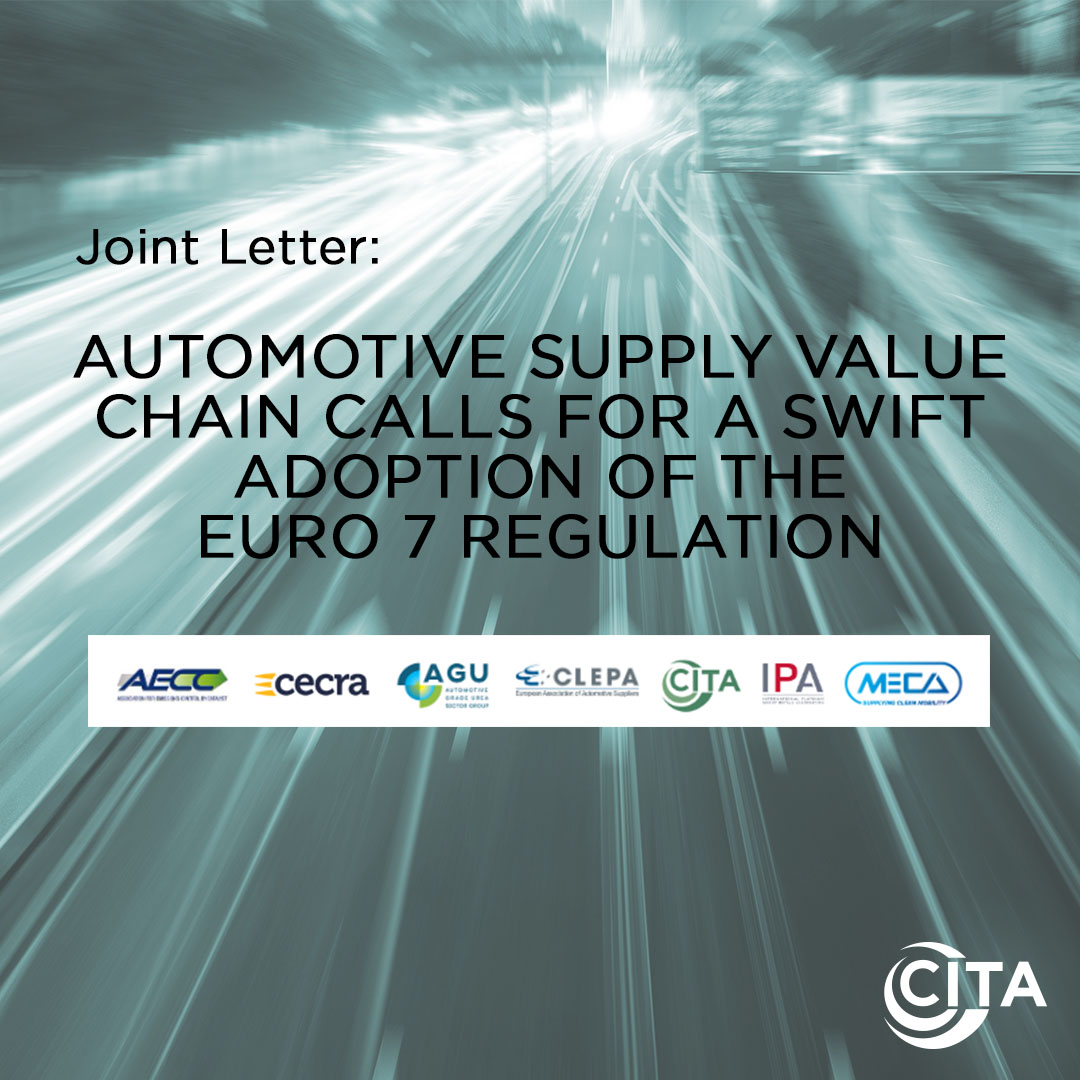Automotive supply value chain calls for a swift adoption of EU7 regulation
Members of the European Parliament,
Ministers of the 27 EU Member States,
Last year, the European Commission proposed a new Euro 7 pollutant emissions standard for new vehicle types, after years of collecting evidence and data.
The European Union needs a timely and well-targeted Euro 7 legislation for cars, vans, trucks and buses to improve the health and wellbeing of its citizens and urban population in particular. Cities cannot be left alone to improve air quality with the limited resources available to them. Euro 7 will make it easier for national and local administrations to deliver on ambient air quality commitments currently being upgraded by EU legislation. While the shift to electromobility is underway, 100 million new vehicles with an internal combustion engine are expected to be sold in the EU in the next decade and will remain on European roads for years to come. Electrification and continued improvement of conventional engines are complementary approaches and should work hand in hand to achieve significant pollution reductions.
Europe needs more ambitious standards and must maintain its global leadership alongside the US and China, which are also adopting more ambitious pollutant regulations. European vehicle manufacturers will need to invest in these other regions in adopting advanced technologies anyway to remain competitive in the global market.
New Euro 7 rules need to be adopted within the current legislative period, to ensure that citizens living in cities can continue to benefit as soon as possible from improving air quality facilitated by reduced vehicle pollution. Emission control systems meeting the Commission proposal requirements are already mature and available, as shown by data collected during robust road testing by various technology providers. The timely availability of mature affordable emission control systems meeting the requirements of the Commission proposal has been demonstrated by data collected during robust road testing by various technology providers. To facilitate, implementing and delegated acts should be swiftly adopted after the legislation, with the most important parameters already developed in parallel in the coming months. This early development of the regulatory detail is critical to a successful implementation, providing industry with confidence to invest, and enabling the path to cleaner road transport and improved public health.
Further, Euro 7 emission testing procedures need enhancement compared to Euro 6/VI, in combination with the ambitious limit values and lifetime requirements proposed by the Commission, to reflect driving conditions and the actual environmental impact of different vehicle types in the real world. The Commission’s proposed new testing rules will, with certain improvements to ensure representativeness of on-road testing, strike a good balance between what is necessary and what is feasible. They will ensure that emissions from trucks especially will be controlled under true real-world conditions.
As the necessary technologies are already known, the most accurate cost analysis of Euro 7 demonstrates that the price to pay for industry and consumers is moderate. Euro 7 vehicles will remain affordable, while according to the Commission’s own calculations, every euro invested in Euro 7 technology will return five times more benefits in terms of health and environment protection costs.
Now that discussions on the legislative proposal are at a decisive point, the industrial sectors represented by the signatories below call on EU institutions to take an ambitious and future-oriented position on Euro 7 including for exhaust and non-exhaust, i.e. evaporative and refuelling systems, brakes and tyres; as well as for reagent quality requirements and the durability of batteries, without undue delay.
Signatories


